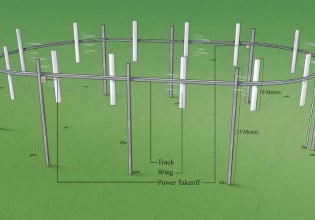PolyFuel Inc. (Menlo Park, CA), a provider of direct methanol fuel cell (DMFC) technology for portable devices and laptop computers, announced a breakthrough in technology that could ultimately make hydrogen fuel-cell-powered automobiles a commercial reality. At the heart of the breakthrough is a new family of membranes that exhibit a set of performance characteristics never before simultaneously achieved in hydrogen-based fuel cells.
To date, the membrane used for hydrogen fuel cells (for cars) is based on technology invented by DuPont in the 1960's using Teflon, which is not commercially viable for automobiles. PolyFuel's breakthrough is based on different chemistry (hydrocarbon, rather than flourine) and has the potential to change the economics of auto fuel cells, because it can operate at higher temperatures, provide longer power between charges, and is less expensive to manufacture.
PolyFuel’s hydrocarbon membrane technology operates stably at low relative humidity. The fuel cell or automotive manufacturers do not have to add overly complicated and expensive systems to keep the membrane hydrated. The PolyFuel hydrocarbon membranes retain stability at an operating temperature of 95 °C, which reduces engine cooling system complexities and limitations. Furthermore, PolyFuel hydrocarbon membranes produce 10% to 15% more power at real-world operating conditions compared to perfluorinated membranes.
The manufacturing cost of the PolyFuel hydrocarbon membranes is already significantly less than that of perfluorinated membranes, and will go even lower with volume. Currently, it takes about $5,000 worth of perfluorinated membrane to make a single fuel cell for a 100 kW (134 HP) vehicle. Because the PolyFuel hydrocarbon membrane has fundamental cost advantages over perfluorinated membranes, critical automotive cost targets can be realized much sooner than previously expected.






